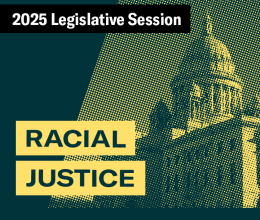
Ten years after Rhode Island law began requiring police departments to post online their police complaint forms and procedures, some departments are still not in compliance with some of the law’s basic requirements, a report issued Wednesday by the American Civil Liberties Union of Rhode Island has found. The requirement, contained in the Racial Profiling Prevention Act of 2004, was designed to make it easier for victims of police misconduct to file complaints with departments. Over the years, some police officials have cited the rarity of complaints they receive to minimize claims about the prevalence of racial profiling or other misconduct.
The ACLU of RI report reviewed the websites of all municipal police departments and the State Police to determine if the departments had posted online their police complaint forms and procedures, a requirement of the 2004 law. The report is an update to the ACLU’s similar 2007 review of online complaint forms that found almost half of the police departments in the state had failed to post online their police complaint forms or procedures. While some departments have improved their practices, the latest report said the results “remain disheartening.”
The report found:
- Five police departments – Barrington (with a broken link), East Greenwich, Little Compton, New Shoreham and Tiverton - post no complaint forms or procedures online, despite their posting of other forms and information on city or town websites.
- Three police departments - Coventry, Hopkinton and Richmond - post only complaint forms or procedures but not, as the law requires, both.
- Nineteen of the departments that post their procedures online nonetheless fail to explicitly indicate that they accept complaints in all the manners required (by mail, fax, and in person).
- At least two departments - Coventry and Warren - require a complainant’s social security number, and at least one (South Kingstown) requires the complaint to be notarized. The report notes that such information is unnecessary to the complaint process and may dissuade individuals to file complaints.
- At least eleven departments make selective cautionary statements or require complainants to sign disclaimers that suggest that the complainants may find themselves under investigation. These include warnings that complainants may be prosecuted criminally or civilly if they are determined to have made false statements, even though similar warnings do not appear on other documents submitted to the police. Such warnings, the report notes, “likely discourage those who fear retribution or harassment from filing complaints.”
- Several departments give only a perfunctory explanation of their complaint process, barely adhering to the law and providing virtually no guidance to complainants.
The ACLU report concluded that given the ease by which these documents can be posted online that “it is eye-opening – and disheartening – to discover that too many fail to meet even minimal standards to make the process user-friendly.”
The report called on police departments to review their websites to ensure compliance with the law, remove problematic elements from their complaint forms and procedures, and ensure their complaint process is explained thoroughly. The report concluded that “if police departments are serious about their desire to receive feedback from the community, and to aggressively address issues of police misconduct and racial profiling, adjusting their complaint procedures and forms is a small, relatively simple step toward facilitating the filing of complaints.”



